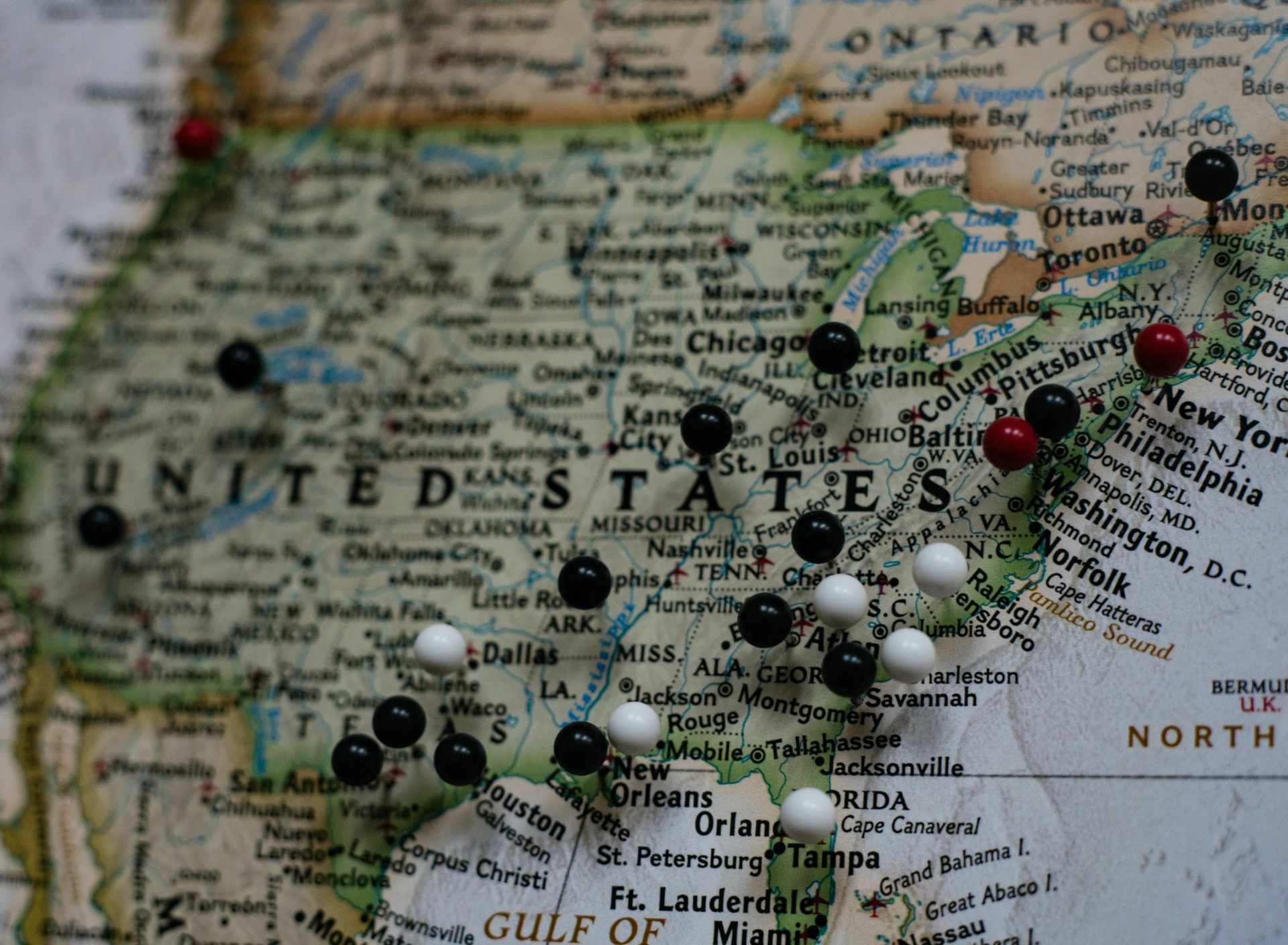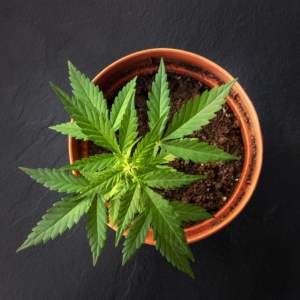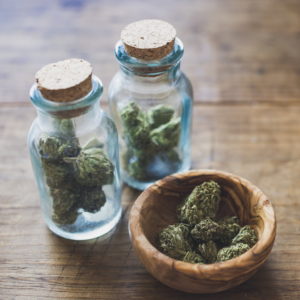For cannabis consumers, visiting or moving to another state can be a confusing, costly and a potentially dangerous experience. Though more and more states are moving toward approval of medical marijuana—and some states like California have adopted regulated, recreational cannabis use, there are still many parts of the country where simple possession of cannabis is illegal.
FOLLOW US ON FACEBOOK & INSTAGRAM
Regardless of State Laws, Marijuana Is Still Federally Illegal
Though states have the right to regulate marijuana, regardless of where you are, cannabis is still classified as a Schedule 1 drug by the federal government. According to the U.S. Drug Enforcement Administration’s Controlled Substances Act, Schedule 1 substances are defined as “drugs with no currently accepted medical use and a high potential for abuse.” Medical cannabis users aren’t exempt from federal law. Always be aware of local laws and carry your valid recommendation when and wherever you travel.
State Cannabis Laws: 50 Shades of Legal
Marijuana laws can be divided into five categories:
-
Legal for personal use: “Recreational” cannabis is authorized in these states. Personal use states have adjunct medical marijuana programs that usually preceded recreational use. California is an example of one of these states.
-
Legal for medical use: Qualified medical patients have access to medical marijuana. The types of marijuana available to patients varies from state to state. New York is a medical marijuana state.
-
Decriminalized states: This usually means that states have reduced sentences for simple possession of small amounts of marijuana. Some, but not all decriminalized states offer medical marijuana programs. Illinois is an example of a decriminalized state with a medical cannabis program.
-
CBD-specific programs: These are programs that only provide marijuana products rich in cannabidiol (CBD). In some cases, states only authorize patients with epilepsy to use CBD cannabis products. Florida is an example of a state implementing a CBD-specific program.
-
Illegal states: These are the states where it’s just plain illegal to possess cannabis in any way, shape or form. Idaho is an example of a state where all forms of possession and consumption are illegal.
Cannabis Laws State by State
This state-by-state guide will provide you with the latest laws regarding cannabis possession throughout the U.S. Remember that laws are always changing, and that in states like California, individual jurisdictions often choose to tailor state laws to fit their local communities. We’ve included links to the specifics on all of the rules and laws that govern marijuana in each state.
RELATED: RECREATIONAL CANNABIS BRINGS SUCCESS & CHALLENGES TO CA
Every medical state authorizes different medical conditions. States also vary when it comes to transporting, processing and distributing cannabis. Many states treat possession of concentrates differently from possession of cannabis flower. Even if you live in a legal state, it’s still illegal to transport cannabis across state lines.
Remember: Even in legal states, people who break cannabis-related laws are arrested every day. Informed cannabis consumers make safer cannabis consumers.
Alabama: A CBD-specific medical marijuana program allows for the use of high-CBD extracts for patients with qualifying conditions. The University of Alabama is conducting a CBD study in which patients may enroll. For non-patients, possession of marijuana is a Class A Misdemeanor, punishable by a maximum sentence of one year and a maximum fine of $6,000. Hashish and tetrahydrocannabinol (THC) concentrates are considered Schedule 1 substances. Possession of Schedule 1 substances may result in a prison sentence between one and 10 years.
Alaska: Cannabis is legal for adult personal use and medical use for patients with qualifying medical conditions. Patients must apply for a medical marijuana card. Patients and recreational users may possess up to 1 ounce of marijuana and may grow up to six plants. Possession of 3 grams or less of concentrates is a misdemeanor with a maximum fine of $10,000.
Arizona: Medical marijuana is authorized for patients with a variety of qualifying conditions. Patients with a state-issued registry card may possess 2.5 ounces of usable cannabis and some cultivation is allowed. For non-patients, possession of less than 2 pounds of flowers or concentrates is punishable by incarceration and a maximum fine of $150,000.
Arkansas: Medical marijuana has been newly authorized for patients with a variety of qualifying conditions. For non-patients, [possession of less than 4 ounces of marijuana is a Class A Misdemeanor] ]( https://norml.org/laws/item/arkansas-penalties), punishable by up to one year in jail and a fine of up to $2,500. Visiting qualifying patients may obtain marijuana from a dispensary with completion of a visiting patient form and presentation of a valid physician’s recommendation.
California: Cannabis is legal for adult personal use and medical use for patients with a variety of qualifying conditions. Patients may apply for a state-issued ID card, which exempts qualified patients from paying some local sales taxes on cannabis purchases at dispensaries. Under the Compassionate Use Act, patients may possess and transport up to 8 ounces of dried cannabis and up to six mature plants. Patients requiring larger amounts of cannabis may possess and cultivate any amount reasonably related to your current medical needs. For non-patients, adults 21 and over may possess up to 1 ounce of flowers, 8 grams of concentrates and grow up to six plants for personal use.
Colorado: Cannabis is legal for adult personal use and medical use for patients with a variety of qualifying conditions. Patients may apply for a state-issued ID card and may possess up to 2 ounces of cannabis and cultivate up to six mature plants. Non-patients may possess up to 1 ounce of flowers, up to 1 ounce of concentrates and cultivate up to six plants.
Connecticut: Cannabis is decriminalized with minimal penalties for possession of small amounts of cannabis. Connecticut has a medical marijuana program authorizing cannabis use for patients with a variety of qualifying conditions. Patients may possess a 2.5-ounce monthly supply of cannabis but may not grow marijuana. Medical marijuana certificates are issued by the state, and patients must be residents of Connecticut. Non-patients may possess up to 1/2 ounce of flower or concentrates, with a maximum fine of $150.
Delaware: Cannabis is decriminalized with minimal penalties for possession of small amounts of cannabis. Delaware has a medical marijuana program authorizing cannabis use for patients with a variety of qualifying conditions. Patients may possess up to 6 ounces at a time and obtain 3 ounces every 14 days. Three “compassion centers” provide all cannabis distribution in the state. Non-patients may possess up to 1 ounce of flowers or concentrates, with a maximum fine of $100.
Florida: A CBD-specific medical marijuana program is authorized for patients suffering from cancer, muscle spasms, seizures, terminal illness and other qualifying conditions. Patients must obtain a state-issued registry identification card and can then purchase low-THC products from state-licensed dispensaries. For non-patients, possession of 20 grams or less of cannabis is a misdemeanor punishable by a maximum sentence of one year imprisonment and a maximum fine of $1,000.
Georgia: A CBD-specific medical marijuana program is authorized for patients suffering from eight specific illnesses including cancer and Parkinson’s disease. Patients must obtain a state-issued Low THC Registry Card, which allows possession of up to 20 fluid ounces of “low-THC oil.” For non-patients, possession of 1 ounce or less of marijuana is a misdemeanor punishable by up to 12 months in prison and a maximum fine of $1,000.
Hawaii: Medical marijuana is authorized for patients with a variety of qualifying conditions. Patients may apply for a state-issued “329 Registry Card” which entitles them to possess 4 ounces of cannabis and grow up to 10 plants. For non-patients, possession of less than 1 ounce of marijuana is a misdemeanor punishable by up to 30 days imprisonment and/or a fine of $1,000.
Idaho: Cannabis is illegal. Possession of 3 ounces or less of marijuana or concentrates is a misdemeanor punishable by up to one year imprisonment and/or a fine up to $1,000.
Illinois: Cannabis is decriminalized with possession of 10 grams of marijuana or less a civil violation, punishable by a fine of $100–$200 and no jail time. Illinois has a medical cannabis program for patients with a variety of qualifying conditions. Patients may apply for a state-issued registry card and may possess 2.5 ounces of cannabis every 14 days.
Indiana: A CBD-specific medical marijuana program allows for the use of high-CBD extracts for patients with debilitating epilepsy. For non-patients, possession of any amount of marijuana is a Class B misdemeanor punishable by not more than 180 days and a possible fine of not more than $1,000. Possession of concentrates is a Class A misdemeanor, punishable by a maximum imprisonment of one year and a maximum fine of $5,000.
Idaho: Cannabis is illegal. Possession of 3 ounces or less of marijuana is a misdemeanor, punishable by up to one year imprisonment and/or a fine up to $1,000.
Iowa: A CBD-specific medical marijuana program allows for the use of high CBD extracts for patients with qualifying conditions. Currently no state outlets exist, but patients are allowed to obtain medicine from neighboring states. For non-patients, possession of any amount of marijuana is a misdemeanor and is punishable by a fine of up to $1,000 and/or up to six months of imprisonment.
Kansas: Cannabis is illegal. Possession of marijuana and concentrates is a Class B misdemeanor and is punishable by a maximum of six months imprisonment and a maximum fine of $1,000 for a first-time offense.
Kentucky: A CBD-specific medical marijuana program is available for patients with any condition authorized by a physician. Patients may only obtain a written order for CBD from a doctor practicing at a hospital or associated clinic affiliated with a Kentucky public university that has a college or school of medicine, or by participating in a clinical trial. For non-patients, possession of up to 8 ounces of marijuana and concentrates is a Class B misdemeanor, punishable by a maximum sentence of 45 days imprisonment and a maximum fine of $250.
Louisiana: Though a medical marijuana program for qualified patients was voted into law in 2015, patients in Louisiana are still waiting for the program’s rollout. For non-patients, possession of 14 grams or less of marijuana is punishable by a fine of up to $300 and/or up to 15 days of imprisonment.
Maine: Cannabis is legal for adult personal use and medical use for a variety of qualifying conditions. Patients are allowed to possess 2.5 ounces and six mature plants. Non-patient adults may possess up to 2.5 ounces of marijuana or up to 2.5 ounces of a combination of marijuana and concentrates with no more than 5 grams of concentrates. Adults may cultivate up to six flowering marijuana plants, 12 immature plants and unlimited seedlings.
Maryland: Cannabis is decriminalized, with simple possession of less than 10 grams a civil offense and fines not exceeding $100 for first-time offenders. Maryland has a medical cannabis program authorizing possession of no more than 120 grams of cannabis or 36 grams of extracts. The program is beginning to provide cannabis to dispensaries as of early 2018, and non-mandatory patient ID cards are available through the state.
Massachusetts: Cannabis is legal for adult personal use and medical use for patients with a variety of qualifying conditions. Patients may possess up to 10 ounces of cannabis every two months and limited growing options are available. State-issued ID cards are available for patients. Non-patients may possess up to 1 ounce of marijuana and up to 5 grams of marijuana concentrate in their residence.
Michigan: Medical marijuana is authorized for patients with a variety of qualifying conditions. Patients may possess 2.5 ounces of cannabis and grow up to 12 plants. Patients may apply for a state-issued registry ID card. For non-patients, possession of any amount is a misdemeanor, which is punishable by a maximum sentence of one year imprisonment and a maximum fine of $2,000.
Minnesota: Cannabis is decriminalized, with possession of 42.5 grams or less a misdemeanor punishable by a maximum fine of $200. Minnesota has a medical cannabis program for patients with qualifying conditions. Patients may possess a 30-day supply of non-smokable preparations, and no cultivation is allowed.
Mississippi: Cannabis is decriminalized with a first offense for possession of 30 grams or less punishable by a fine of $100–$250. Mississippi has a CBD-specific medical marijuana program allowing for the use of high CBD extracts for patients with debilitating epilepsy. Patients may possess cannabis extracts that contain more than 15% CBD and no more than 0.5% THC.
Missouri: Cannabis is decriminalized, with possession of up to 10 grams for first-time offenders a Class D misdemeanor, punishable by a maximum fine of $500. Missouri has a CBD-specific medical marijuana program for patients with debilitating epilepsy. Patients may possess 20 ounces of cannabis extracts containing 5% or more of CBD and no more than three-tenths of 1% percent of THC. A bill was recently introduced to the Missouri legislature, which if passed would expand the state’s medical cannabis program.
Montana: Medical marijuana is authorized for patients with qualifying conditions. Patients may possess up to 1 ounce of cannabis, cultivate up to four mature plants and may apply for a state-issued patient registry card. Non-patients possessing 60 grams or less of marijuana can be convicted of a misdemeanor, punishable by up to six months imprisonment and a fine of $100-$500.
Nebraska: Cannabis is decriminalized with possession of 1 ounce or less an infraction punishable by a maximum fine of $300 and possible drug education. Possession of hash is a Class IV felony, punishable by a maximum sentence of five years’ imprisonment and a maximum fine of $10,000.
Nevada: Cannabis is legal for adult personal use and medical use for patients with a variety of qualifying medical conditions. Patients with a state-issued medical card may possess 2.5 ounces of flowers and other products in a 14-day period and cultivation is allowed for patients. Patients holding valid medical marijuana recommendations from other recognized states may purchase cannabis in Nevada. Recreational users may possess up to 1 ounce and/or up to 3.5 grams of concentrate.
New Hampshire: Cannabis is decriminalized with adults 18 years of age or older possessing less than three-quarters of an ounce of marijuana guilty of a violation and subject to a fine of $100. New Hampshire has a medical marijuana program for patients with a variety of qualifying conditions. Patients with state registry ID cards may possess 2 ounces of marijuana, and it must be purchased from one of three treatment centers.
New Jersey: Medical marijuana is authorized for patients with qualifying medical conditions. Patients may possess 2 ounces per month and no cultivation is allowed. Patients must register with the state and purchase their cannabis at authorized treatment centers. For non-patients, possession of 50 grams or less is punishable by a maximum sentence of six months imprisonment and a maximum fine of $1,000.
New Mexico: Medical marijuana is authorized for patients with qualifying medical conditions. Patients may possess 8 ounces of cannabis over a 90-day period and cultivate four mature and 12 immature plants. Patients may apply for a state-issued registry card. Non-patients possessing 1 ounce or less of marijuana are guilty of a petty misdemeanor, punishable by a fine of $50-$100 and/or up to 15 days of imprisonment.
New York: Cannabis is decriminalized. For a first offender, possession of up to 25 grams of marijuana is punishable by a fine of $100. New York has a medical marijuana program for patients with a variety of qualifying conditions. Patients may possess a 30-day supply of cannabis-infused products including lotions, ointments, patches, chewable tablets and lozenges, as well as non-smokable forms of ground plant material. No edibles or smokable versions of cannabis are allowed—only vaporized liquids or oils. Patients may apply for a state-issued registration card.
North Carolina: Cannabis is decriminalized. Possession of 0.5 ounces or less is a Class 3 misdemeanor and a maximum fine of $200. North Carolina has a CBD-specific medical marijuana program for patients with debilitating epilepsy. Patients may use extracts containing less than nine-tenths of 1% THC and at least 5% CBD by weight.
North Dakota: Medical marijuana was recently authorized for patients with qualifying medical conditions. It’s anticipated the program will roll out in the summer of 2018. Patients with a physician’s recommendation will be able legally obtain up to 3 ounces of cannabis provided by state-licensed dispensaries. The maximum amount of THC permitted in a 30-day period for concentrates and medical cannabinoid products is 2,000 milligrams. For non-patients, possession of 1 ounce or less of marijuana is a Class B misdemeanor punishable by maximum imprisonment of 30 days and/or a fine of $1,500.
Ohio: Cannabis is decriminalized with possession of less than 100 grams a minor misdemeanor punishable by a $150 fine. Ohio’s medical marijuana program is due to start in September of 2018. It will serve patients with a variety of qualifying medical conditions who will be able to purchase cannabis from state-authorized dispensaries.
Oklahoma: A CBD-specific medical marijuana program is available for pediatric patients with epilepsy and others with specific conditions including wasting diseases. Patients may use liquid CBD preparations containing no more than three-tenths of 1% THC. For non-patients, possession of any amount of marijuana is a misdemeanor with a sentence of up to one year and a fine of up to $1,000.
Oregon: Cannabis is legal for adult personal and medical use for patients with a variety of qualified medical conditions. Patients who enroll with the state’s medical marijuana program are allowed 24 ounces of usable cannabis and six mature plants. Recreational adult users may possess but not use up to 1 ounce of cannabis in public. They may also possess up to 8 ounces at home and grow up to four plants.
Pennsylvania: Medical marijuana is newly authorized for patients with qualifying medical conditions, and it’s anticipated that the program will roll out this year. Patients must sign up with the state registry and may possess a 30-day supply of cannabis-infused pill, oils, topical ointments, tinctures or liquids. No smokable cannabis is allowed. For non-patients, possession of 30 grams or less of flower or 8 grams or less of hashish is a misdemeanor punishable by 30 days in jail and/or a $500 fine.
Rhode Island: Cannabis is decriminalized with possession marijuana up to 1 ounce treated as a civil violation, punishable by a $150 fine, no jail time and no criminal record. Rhode Island’s medical marijuana program authorizes patients with qualifying medical conditions and a state-issued ID card to possess 2.5 ounces of marijuana and to cultivate a specific number of plants based on your location.
South Carolina: A CBD-specific medical marijuana program is available to patients with severe epilepsy who are enrolled in a clinical research program. Patients may use cannabis extracts that contain more than 15% CBD and no more than nine-tenths of 1% or less THC. For non-patients, possession of 1 ounce or less is a misdemeanor punishable by a maximum sentence of 30 days imprisonment and a fine of $100-$200.
South Dakota: Cannabis is illegal. Possession of 2 ounces or less is a Class 1 misdemeanor punishable by a maximum sentence of one-year imprisonment and a maximum fine of $2,000.
Tennessee: A CBD-specific medical marijuana program is available to patients with debilitating seizures. Patients may use cannabis oil containing no more than nine-tenths of 1% or less THC. For non-patients, possession of a half-ounce of marijuana or less is a misdemeanor punishable by up to one year in jail and maximum fine of $2,500. A bill was introduced in January of 2018 which if passed would expand Tennessee’s medical marijuana program.
Texas: Cannabis is illegal. Possession of 2 ounces or less of marijuana is a Class B misdemeanor punishable by up to 180 days imprisonment and a fine not to exceed $2,000. There’s currently disagreement in the state on whether low-THC “prescriptions” are legal.
Utah: A CBD-specific medical marijuana program is available for patients with severe epilepsy. A “hemp registration card” is available from the Utah Department of Health. For non-patients, possession of less than 1 ounce is a Class B misdemeanor punishable by a maximum sentence of six months imprisonment and a maximum fine of $1,000.
Vermont: Cannabis is legal for adult personal use and medical use for patients with a variety of qualifying medical conditions. Patients must register with the state and may possess no more than 2 ounces of usable marijuana, two mature marijuana plants, and seven immature marijuana plants. As of July 1, 2018, adult recreational possession of up to 1 ounce will no longer be punishable by a civil penalty. The law also decriminalizes possession of 5 grams or less of hashish.
Virginia: A CBD-specific medical marijuana program is available to patients with debilitating epilepsy. Patients may possess and use cannabis oil that contains no more than 5% THC or 15% CBD. For non-patients, [possession of marijuana is a Class 1 misdemeanor] (https://norml.org/laws/item/virginia-penalties-2) punishable by no more than 30 days in jail and/or a fine of up to $500 for a first offense.
Washington: Cannabis is legal for adult personal use and medical use for patients with qualifying medical conditions. People who become authorized patients may purchase tax-free compliant marijuana products, possess 48 ounces of marijuana-infused product in solid form, 3 ounces of useable marijuana, 216 ounces of marijuana-infused product in liquid form or 21 grams of concentrates. Additionally, patients may grow up to six plants for medical use. Recreational adult users may possess, in private, up to 1 ounce of cannabis for personal use, as well as the possession of up to 16 ounces of marijuana-infused product in solid form and 72 ounces of marijuana-infused product in liquid form, and aren’t subject to criminal or civil penalty.
Washington, D.C.: Cannabis is legal for adult personal use and medical use for patients with qualifying medical conditions. Patients who register with the district may possess up to 2 ounces of cannabis. Recreational adult users 21 years of age or older may possess up to 2 ounces of marijuana and cultivate no more than six plants in their primary residence without penalty.
West Virginia: A medical marijuana program will become operational in 2019 for patients with qualifying medical conditions. For non-patients, possession of marijuana in any amount is a misdemeanor punishable by not less than 90 days, nor more than six months imprisonment and not fined more than $1,000.
Wisconsin: A CBD-specific medical marijuana program is available for patients having any medical condition for which a physician prescribes CBD. Patients may possess CBD in a form without a psychoactive effect, but there are few clear guidelines on how patients may obtain CBD. For non-patients, a first offense for possession of marijuana is a misdemeanor punishable by a fine of up to $1,000 and/or imprisonment of up to six months.
Wyoming: A CBD-specific medical marijuana program is available for patients with intractable epilepsy or seizure disorders. No maximum possession limit is currently imposed. For non-patients, any person using or under the influence of marijuana is subject to a misdemeanor punishable by a maximum of six months imprisonment and/or a maximum fine of $750.
Photo credit: Joey Csunyo
If you’re new to cannabis and want to learn more, take a look at our Cannabis 101 post. HelloMD can help you get your medical marijuana recommendation; it’s easy, private and 100% online.






